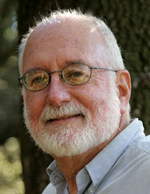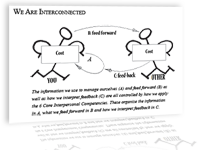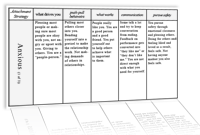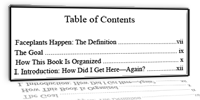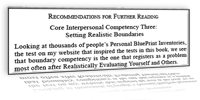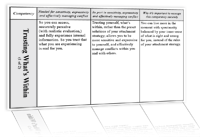About The Author
It occurred to me some years ago that 'Your parents take you on an emotional bus ride and they drop you off at the last stop they reached.' Once there, you start your own emotional life at that last stop, the point where they stopped growing emotionally. If you are similar to me, your parents hadn't taken the bus all that far.
Like most all parents, mine loved me, but how they did so created within me chronic anxiety, depression and very low self-worth. The one person who saved me, named EA (E-Ahh), our Maid, was the link to emotional stability in our family. This was in 1940s New Orleans. I learned that I always could count on EA for feelings of Care, Concern and Courage. Her love stabilized me but it could not undo the damage. Though I developed a brash external manner, internally I was still terrified.
No more than an average student in high school and college, I moved from New Orleans to New York City when I graduated. I started a business from a rented desk and phone, calling potential clients straight from The Yellow Pages. Through hard work and luck, I eventually became successful in advertising and printing sales. I added promotion of arena-based rock concerts to my services, sure that even greater financial achievement would make my afflictions disappear. Yet, in my late-20's, it finally dawned on me that despite my accomplishments, my issues weren't going away. To sort it out, I decided to enter therapy, but did so with great trepidation. One day, however, my therapist said something, and the terrors briefly evaporated. I felt peaceful for the first time that I could remember. My new direction was set: I would do whatever it took to end my internal terror and replace it permanently with this new-found inner peace.
That course of action led me to graduate school in psychology. I thought I'd be taught a model of the way people worked and then techniques to fix problems we encountered. What I learned instead was that no one had developed such a generally-accepted model, and that therapists were pretty much on their own when it came to attending to the problems people presented. I was appalled and disappointed. I knew there were thousands, probably millions of people who were suffering yet, when in therapy, they were diagnosed and treated like there was something wrong with them for having such difficulties in life. I wanted to be a therapist who'd never hurt someone, who'd strive to benefit those who came to me in need, so I focused on what I had to learn to do so.
I identified three major questions to answer:
- Why do we act as we do?
(What are the motivations for how we act?) - Why can't we be different when we want to be different?
(Why are we stuck in our ways?) - What would allow us to become who we'd like to be?
(How do we stop faceplanting and gain peace of mind?)
In the past 30 years, I've sought to answer these questions. I analyzed and changed my own behavior and I worked with thousands of clients trying to understand and change theirs. As a Police and Employment Psychologist, I've evaluated some 20,000 people looking for jobs, from janitors, city managers, police officers, firefighters, to business executives and more; people seeking just about every type of job imaginable. I had to understand their motivations and predict their work behavior. I also helped employees who faceplanted on the job. In time, I became comfortable with my answers to the three questions because of the feedback I received from my clients about work behavior I'd predicted, and how those who came to me for help were able to make changes they wanted in their lives. Holding this book, you now have the answers to the three questions in-hand, as they became the basis for No More Faceplants.
Having lived through my own stuff and finding that Attachment Theory provided a significant part of the answers that I'd sought, I am enthusiastic and determined about applying its lessons to enlighten others on behaviors that are holding them back from the life they want and peace of mind. The intent of this book is to help people help themselves. As Tanya said, "Keep facing your fears, until there are no more fears to face."
G.W.
Visit Dr. Gordon Wolf at: Personal Blueprint
